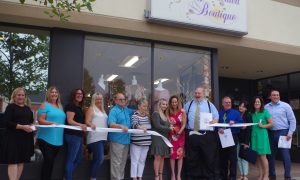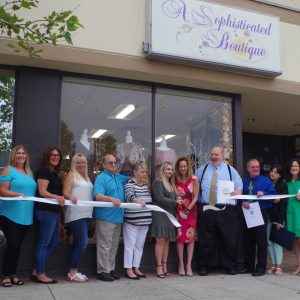WESTFIELD – The City Council narrowly approved a residential factor that buffers tax rate increases for commercial, industrial and personal property Thursday night.
The council voted 6-5 to adopt a residential factor of 86.967 that will result in an estimated residential tax rate of $16.16 per $1,000 of property value and a commercial, industrial, personal property rate of $30.29 per $1,000 pf value
Based upon the average of resident property value in the city, $231,300, that residential factor will increase taxes by $100.06.
The residential factor is derived by adopting a shift between residential property and the commercial property tax rates. State law allows communities to adopt a shift of 1.75 which would have shifted the tax burden from residential to commercial, and would have resulted in a commercial tax rate of $32.52 per $1,000, more than double the residential tax rate of $15.70
The tax rate for the current fiscal year, based upon a shift of 1.64, is $15.41 for residential property and $29.13 for commercial, industrial and personal property. Those tax rates are also based upon municipal revenue of $56 million factored with the levy shift and residential factor.
The council, prior to the residential rate and levy shift discussion voted (9-2) to adopt a municipal revenue figure of $59,138,974.
The council also voted (10-1) to reject a request by Mayor Daniel M. Knapik to commit $284,432 from the city’s free cash to buffer the tax levy factor, citing the atypical weather this year that has resulted in substantial overtime costs. The latest weather event, the Oct. 29 snowstorm, has a projected cost of about $700,000 directly to the city.
The council reached that residential factor decision after a debate that clearly divided the council into those wishing to buffer residential rates and those wishing to buffer commercial rates.
Initially the Finance Committee had recommended (2-1) to adopt a levy shift of 1.61, a number recommended by the Greater Westfield Chamber of Commerce and endorsed by several business advocates on the council.
Those members urged the council to adopt a residential factor and levy shift to keep commercial, industrial and personal property taxes below $30 per $1,000 of value.
At-large Councilor John J. Beltrandi said the business community “is bearing the brunt of fees and taxes. Let’s keep that rate under $30 to send the message that Westfield is business-friendly.”
Ward 6 Councilor Christopher Crean argued that higher commercial tax rates hurt small businesses which don’t have the resources to absorb that additional cost.
“Not all businesses in the city are giant box stores,” Crean said. “Small businesses can’t always pass the tax bill onto consumers. We are one of the few communities in the region where our commercial base is growing and I want to maintain that growth.”
Ward 2 Councilor James E. Brown Jr., countered that argument, citing statistics showing the financial stress the recession and lagging economy have had on residents.
“We’re at just under 10 percent unemployment and foreclosures are increasing,” Brown said. “We don’t need to be the cause that puts someone over the edge.”
Ward 5 Councilor Richard E. Onofrey Jr., chairman of the Finance Committee, then offered an amendment to adopt a levy shift of 1.64 which would have resulted in a 3 percent levy increase to all categories of property.
That amendment was narrowly adopted by a 6-5 vote.
A second amendment to a levy shift of 1.67 was offered by Ward 3 Councilor Peter J. Miller Jr., but withdrawn after it failed to garner support.
“Stay with the 1.64 because it’s reasonable, a slight increase for residential property and a slight increase for business property,” Brown argued.
At-large Councilor Brent B. Bean II expressed frustration with the process of setting a tax rate.
“We have this same discussion every year.” he said. “If we want to save taxpayers money we have to cut spending when we review the budget (in May and June). We have major road and paving projects ongoing, we’ve had major weather disasters, that’s why we’re going with the 2 1/2 percent increase, because we need to pay for those improvements and recovery efforts. The shift of 1.64 is fair to everyone, everyone shares the brunt, everyone’s taxes go up.
“We’re playing games with the shift. Cutting spending, cutting the budget is where the real savings are,” Bean said.
Beltrandi said he opposed the 1.64 shift because of the burden in places on the business community.
“Businesses will be paying several hundred dollars more under that shift. We have to make it easier for businesses to stay in town.” he said.
Nicholas Morganelli also noted that the business community receives far fewer municipal services than residents, yet pay a tax rate nearly double the residential rate.
At-large Councilor David A. Flaherty expanded Morganelli’s argument, noting that commercial water and sewer customers pay at a higher rate that residential customers.
Flaherty then offered another amendment to adopt a levy shift of 1.63, with a residential factor of 86.967. That amendment was approved by a 6-5 vote, then moved to final passage, which was approved by the same 6-5 vote.







